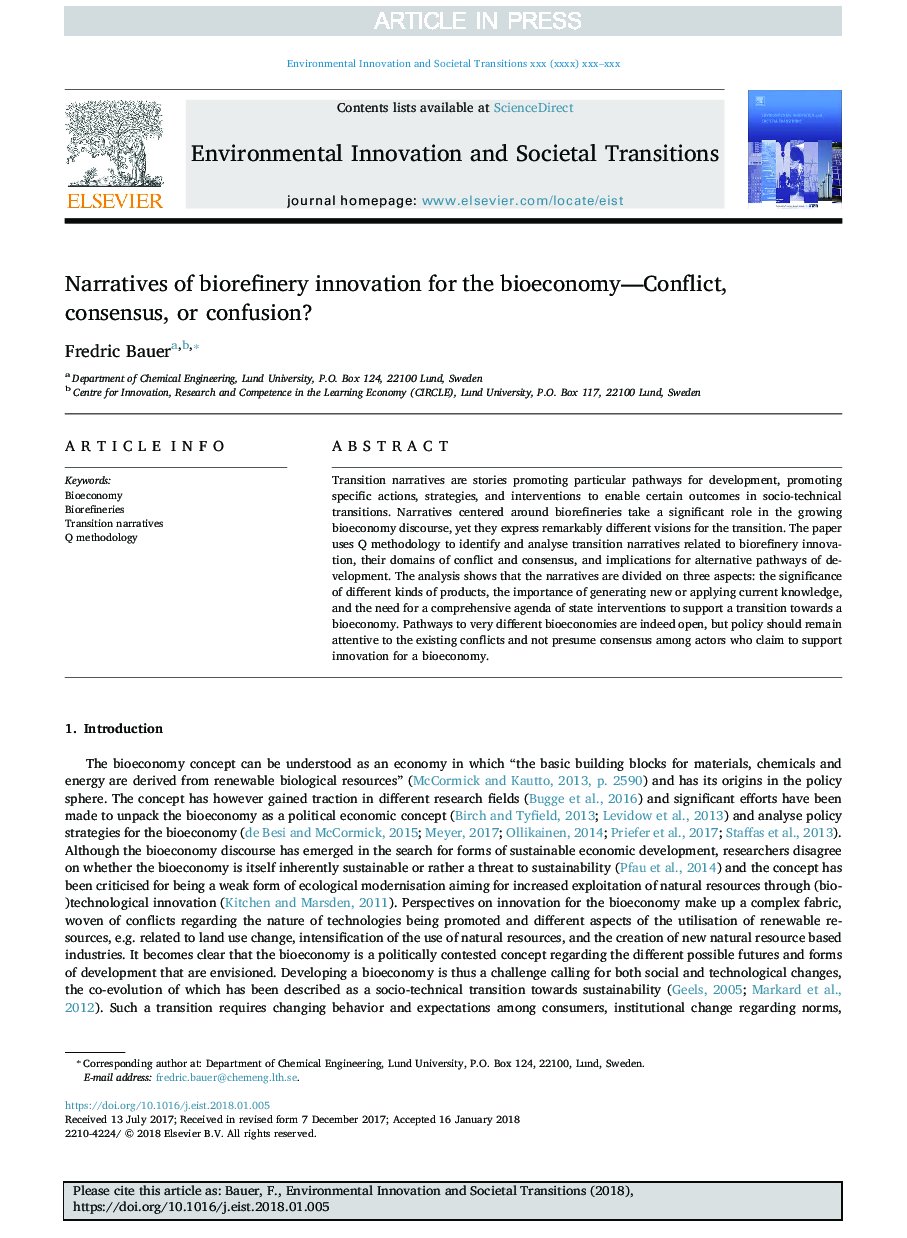| Article ID | Journal | Published Year | Pages | File Type |
|---|---|---|---|---|
| 8946668 | Environmental Innovation and Societal Transitions | 2018 | 12 Pages |
Abstract
Transition narratives are stories promoting particular pathways for development, promoting specific actions, strategies, and interventions to enable certain outcomes in socio-technical transitions. Narratives centered around biorefineries take a significant role in the growing bioeconomy discourse, yet they express remarkably different visions for the transition. The paper uses Q methodology to identify and analyse transition narratives related to biorefinery innovation, their domains of conflict and consensus, and implications for alternative pathways of development. The analysis shows that the narratives are divided on three aspects: the significance of different kinds of products, the importance of generating new or applying current knowledge, and the need for a comprehensive agenda of state interventions to support a transition towards a bioeconomy. Pathways to very different bioeconomies are indeed open, but policy should remain attentive to the existing conflicts and not presume consensus among actors who claim to support innovation for a bioeconomy.
Keywords
Related Topics
Life Sciences
Environmental Science
Management, Monitoring, Policy and Law
Authors
Fredric Bauer,
